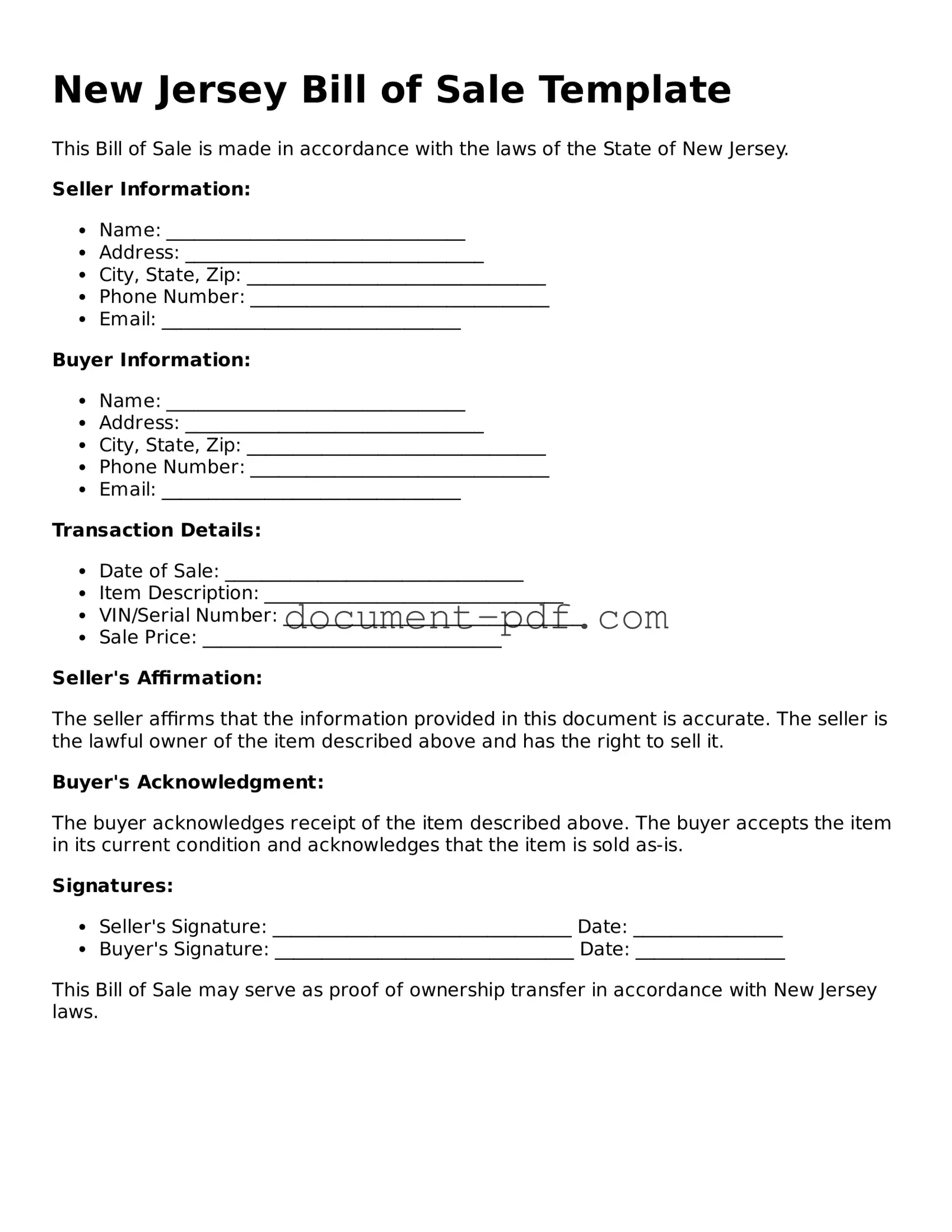The New Jersey Bill of Sale form bears similarities to the Vehicle Title Transfer form. Both documents serve as a means of transferring ownership from one party to another. When a vehicle is sold, the title must be signed over to the new owner, which legally signifies the change in ownership. Just like a bill of sale, the vehicle title transfer includes essential information such as the seller's and buyer's names, vehicle identification number, and the sale price. This ensures that both parties have a clear record of the transaction.
Another document akin to the New Jersey Bill of Sale is the Lease Agreement. While a bill of sale pertains to the sale of goods, a lease agreement outlines the terms under which one party rents property from another. Both documents require clear identification of the parties involved and a description of the item or property in question. They also establish the terms of the transaction, whether it be a sale or a rental, thereby providing legal protection and clarity to both parties.
The Purchase Agreement is another document that shares similarities with the Bill of Sale. This document outlines the terms and conditions under which one party agrees to buy goods or services from another. Like a bill of sale, a purchase agreement includes details such as the price, a description of the items being sold, and the obligations of both the buyer and seller. This agreement serves as a comprehensive record that can be referred to in case of disputes or misunderstandings.
The Affidavit of Sale also parallels the New Jersey Bill of Sale. An affidavit of sale is a sworn statement that confirms the sale of an item, often used when there is no formal bill of sale. It includes similar information, such as the names of the buyer and seller, a description of the item, and the sale price. This document provides an additional layer of assurance for both parties, serving as a legal acknowledgment of the transaction.
For those looking to document vehicle ownership, understanding the significance of a Motor Vehicle Bill of Sale is crucial. This form not only records the sale but also protects the interests of both buyer and seller. To learn more about the requirements and process, visit this essential guide on Motor Vehicle Bill of Sale.
The Warranty Deed shares some characteristics with the Bill of Sale, particularly in real estate transactions. A warranty deed is a document that guarantees a seller’s right to transfer ownership of property and assures the buyer that the property is free from any claims or liens. Both documents require specific details about the parties and the property or goods involved. They provide legal protection and establish a clear record of ownership transfer.
Lastly, the Promissory Note is another document that can be compared to the Bill of Sale. While a bill of sale records the transfer of ownership, a promissory note is a written promise to pay a specified amount of money to a designated party. Both documents are essential in transactions involving a transfer of value. They outline the responsibilities of the parties involved and provide a legal framework for the transaction, ensuring that both parties understand their rights and obligations.

